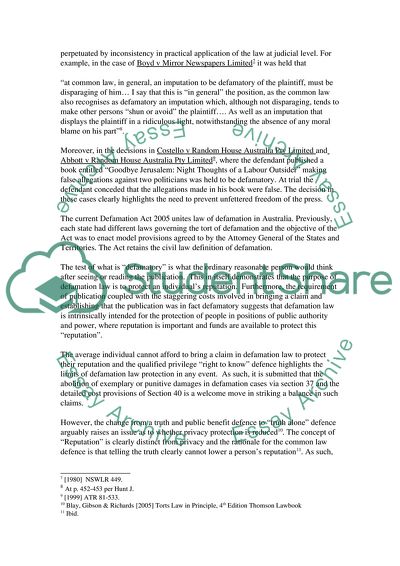Cite this document
(The Law of Defamation Issues Case Study Example | Topics and Well Written Essays - 1750 words, n.d.)
The Law of Defamation Issues Case Study Example | Topics and Well Written Essays - 1750 words. https://studentshare.org/law/1716778-torts-exam-style-question
The Law of Defamation Issues Case Study Example | Topics and Well Written Essays - 1750 words. https://studentshare.org/law/1716778-torts-exam-style-question
(The Law of Defamation Issues Case Study Example | Topics and Well Written Essays - 1750 Words)
The Law of Defamation Issues Case Study Example | Topics and Well Written Essays - 1750 Words. https://studentshare.org/law/1716778-torts-exam-style-question.
The Law of Defamation Issues Case Study Example | Topics and Well Written Essays - 1750 Words. https://studentshare.org/law/1716778-torts-exam-style-question.
“The Law of Defamation Issues Case Study Example | Topics and Well Written Essays - 1750 Words”. https://studentshare.org/law/1716778-torts-exam-style-question.


